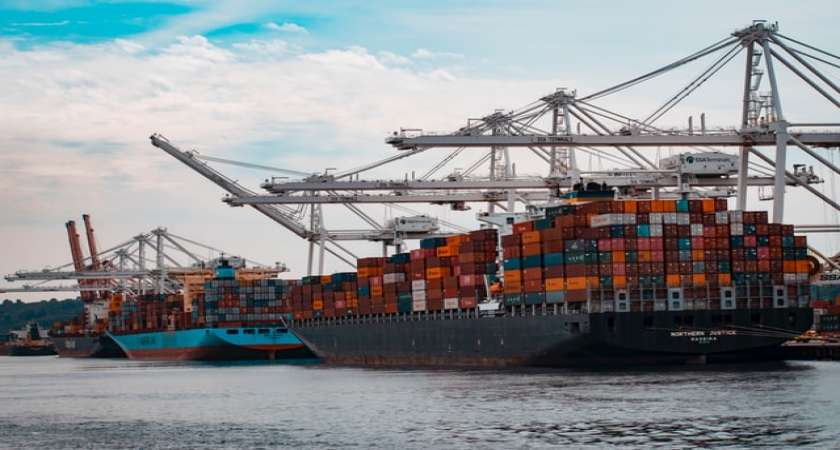The World Health Organization (WHO) has declared the Coronavirus Disease 2019 (“COVID-19”) as a pandemic on 11 March 2020. The Indonesian government has also officially stated the COVID-19 as a non-natural national disaster with the emergency period of 29 February 2020 until 29 May 2020.
In response to the situation, the Indonesian government has recently introduced Large Scale Social Restriction/Pembatasan Sosial Berskala Besar (“PSBB”) which now has been imposed by numbers of provinces in Indonesia. The PSBB urges all businesses and organizations to close their operational office exempting for some specific business sectors. This is undeniable would cause some contracts and transactions to be postponed or canceled. Thus, it is important for all business actors to understand the potential risks to their business and the mitigation of such risks.
Definition of Force Majeure:We note that the concept of force majeure is acknowledged in Indonesian law as a defense against failure of obligation/liabilities performance. The concept of force majeure is generally regulated under Articles 1244 and 1245 ICC which officially stated as follows:
Article 1244 of ICC: “An Obligor shall be required to provide compensation for costs, losses, and interest if Obligor cannot prove that the non-performance or the late performance of Obligor’s obligation is the result of an unforeseen event for which Obligor was not responsible, provided Obligor was not acting in bad faith..”
Article 1245 of ICC: “No compensation for costs, losses, and interest shall be payable if Obligor, because of an act of God or an accident, was prevented from delivering or performing an obligation that Obligor was obliged to deliver or perform, or Obligor was compelled to do something that it was prohibited from doing.”
In this context, we also refer to the Black’s Law Dictionary which defines force majeure as an event or effect that can be neither anticipated nor controlled. In alignment with such definition, the legal doctrine from J. Satrio defines force majeure event as any circumstances which avert or delay the performance by the affected party whereby such event is not happening due to the fault of contracting parties. Nonetheless, it is important to note that for a force majeure defense to be accepted, the affected party shall maintain its good faith and prove that the event could not reasonably have been foreseen at the time of contracting. It is also important to note that the Indonesian Law does not provide any specific definition of the force majeure.
Elements of Force Majeure:We note that main elements that shall be fulfilled in the occurrence of force majeure event are the following:
- Unexpectedcircumstances: It is universally agreed in the civil law system that the circumstance which prevents the defaulting party from performing its obligation shall be unforeseeable or unexpected at the time of contracting and cannot be anticipated by any of the parties.
- No-fault requirement: The defaulting party shall prove that the circumstances which have directly caused the non-performance are not its fault and beyond its’ control. Thus, the defaulting party could not be held accountable for such event.
- Good faith: The good faith is a fundamental principle in contract law as set in Article 1338 (3) ICC. The approach of such principle required contracting parties to perform its obligation in a fair, honest, and reasonable manner. The good faith of defaulting parties could be shown by its effort to mitigate the damages caused by the force majeure event.
The failure to meet the above requirements may cause the non-performance of the defaulting party to be attributed to such party and thus, it will be liable for the damages.
Consequence of Force Majeure:In general, a force majeure event can relieve a defaulted party of their indemnification obligations while the relevant counterparty is not entitled to request for a cancellation of the contract.
We refer to Indonesia’s legal doctrine, force majeure events can be classified into absolute force majeure and relative/temporary force majeure which may result in two different consequences. If a force majeure is considered absolute in nature, it will consequently result in termination of such contract. Otherwise, if the force majeure event considered to be temporary in nature, it is only possible to postpone the completion of the obligations of the contract until the relevant force-majeure event has been resolved.
The COVID-19 condition in Indonesia:The first confirmed COVID-19 case on 2 March 2020 has led to an alarming situation in Indonesia. The Indonesian government has implemented various measures to seize the spreading of coronavirus, inter alia, restraining foreign travel, imposing social restriction, and implementation of physical distancing in the public areas. The government also has urged the citizens to work, study, and conduct religious practices at home during the emergency period.
As the number of coronavirus infection is continuously rising, on 31 March 2020, the President of Republic Indonesia has declared that Indonesia is currently under a public health emergency situation through the PD 11 of 2020. Subsequently, the GR in Lieu of Law 1/2020 was enacted and introduces the PSBB which further regulated by the Ministry of Health through the MoH Regulation 9/2020.
Recently, forasmuch as the escalating of COVID-19 infection which has undoubtedly collide broad implications toward social and economic aspects in Indonesia, the President of Republic Indonesia has declared the COVID-19 as a national disaster on 13 April 2020.
Implementation of force majeure provisions in light to COVID-19 in Indonesia:The contracting parties should determine whether the COVID-19 is considered as a force majeure. Based on the foreshadow explanation, it is clear that COVID-19 is considered as a non-natural disaster with the health emergency status considering its potential for a maximum level of threat, which has been followed by the promulgation of governmental orders instructing, among others, the temporary halt of certain operational business activities.
Furthermore, the contracting parties should examine the force majeure clause in their contract. Provided that the contract is clearly stipulated that force majeure events include “epidemic”, “pandemic”, “disease outbreak”, it is clear that such force majeure clause would be applicable in current COVID-19.However, if the force majeure clause is drafted in a general manner, the parties may refer to the objective inquiry as outlined in the contract or the ICC.
In general, an event that is not specifically listed as a sample of force majeure event under the contract may be invoked as a force majeure defense by the affected party as long as it fulfills the general requirements of a force majeure (either contractually or statutorily). Thus, this will be a specific issue that must be assessed on a case-by-case basis.
Further, it is important to note for the party who seeks to invoke force majeure defense to check the required formalities to appeal to such defense in their contract. For example, providing proper notice to the counterparty in writing as soon as reasonably practicable, or exercising any reasonable efforts to mitigate the damage and minimize the risks. Failure to preserve such formalities may be resulted in the inability of the defaulting party to confide in the force majeure defense.
Please clickhereto find our complete legal overview.
The article above was prepared byMarshall S. Situmorang (Partner)andAniendita Rahmawati (Associate).








